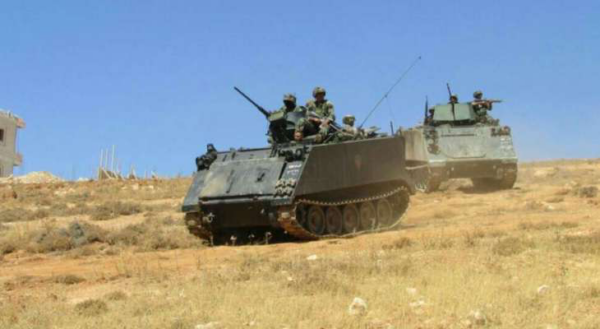Lebanese troops pulled back from the border with Israel late on Monday as a ground invasion by Israel looked imminent, just days after Israel killed the head of the Lebanese armed group Hezbollah in an escalation of regional tensions.
A U.S. official who spoke on condition of anonymity told Reuters the positioning of Israeli troops suggested a ground incursion could be imminent.
Israeli Defence Minister Yoav Gallant told local council heads in northern Israel that the next phase of the war along Lebanon’s southern border would begin soon, and support the aim of bringing home Israelis who have fled Hezbollah rockets during nearly a year of border warfare.
He also told troops: “We will use all the means that may be required – your forces, other forces, from the air, from the sea, and on land. Good luck.”
Lebanese troops pulled back from positions along Lebanon’s southern border with Israel to about five kilometers (3 miles) north of the border, a Lebanese security source told Reuters.
A Lebanese army spokesperson did not confirm or deny the movement.
Amal Al-Hourani, mayor of Jdeidet Marjayoun, a Christian-majority Lebanese village less than 10 km from the border, told Reuters that two locals had received calls apparently from the Israeli army telling them to evacuate the area as soon as possible.
The Israeli military declared the areas around the communities of Metula, Misgav Am, and Kfar Giladi in northern Israel near the border with Lebanon as a closed military zone and said entry to the areas was prohibited.
Friday’s assassination of Hassan Nasrallah – the most powerful leader in Tehran’s “Axis of Resistance”against Israeli and U.S. interests in the Middle East – was one of the heaviest blows in decades to both Hezbollah and Iran.
After two weeks of intensive airstrikes and a string of assassinations of Hezbollah commanders, Israel has suggested ever more strongly that a land invasion is looming.
The Washington Post cited an unidentified U.S. official as saying Israel had already told the U.S. the operation would be smaller than its 2006 war against Hezbollah and focus on border security.
State Department spokesperson Matthew Miller said Israel had told the U.S. it is conducting limited ground operations focused on Hezbollah infrastructure in Lebanon near the border.
Israel last week rejected a proposal by the U.S. and France calling for a 21-day ceasefire to give time for a diplomatic settlement that would allow displaced civilians on both sides to return home.
U.S. President Joe Biden, who has so far had little success urging Israel to rein in its assaults on Hezbollah or on the Hamas militia in Gaza, called for a ceasefire.
“I’m more worried than you might know and I’m comfortable with them stopping,” Biden told reporters when asked if he was comfortable with Israeli plans for a cross-border incursion. “We should have a ceasefire now.”
HEZBOLLAH SAYS IT IS READY TO FACE LAND INCURSION
Hezbollah’s deputy leader Naim Qassem, in a first public speech since Israeli airstrikes killed Nasrallah, said that “the resistance forces are ready for a ground engagement”.
updates
Israeli warplanes began launching a series of raids on the southern suburb of Beirut.
Earlier, the Israeli army called on the residents of Al-Laylaki, Haret Hreik and Burj Al-Barajneh in the southern suburb of Beirut to evacuate for their safety.
Reuters


Leave a Reply
You must be logged in to post a comment.